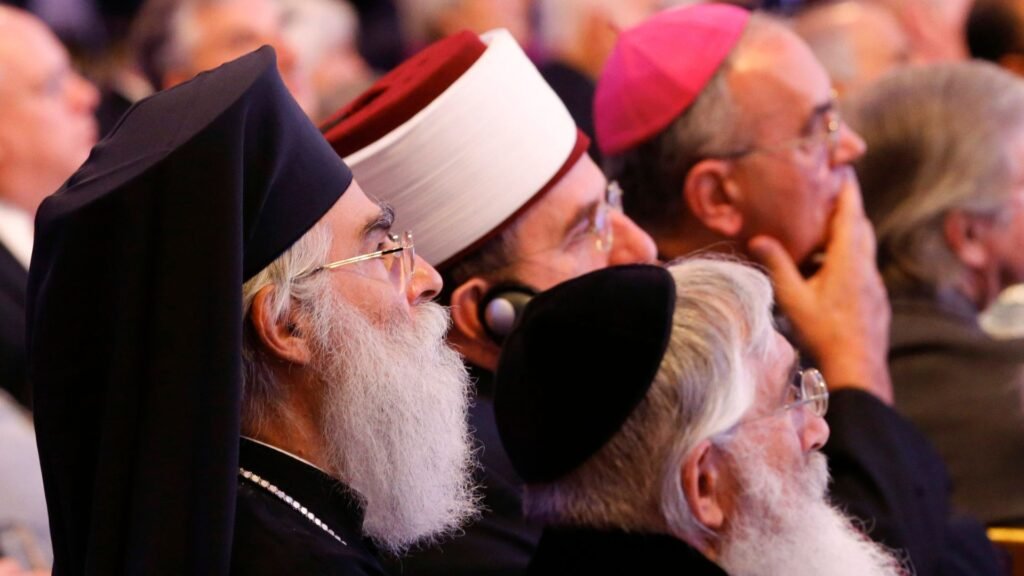Jewish social media plays a significant role in shaping interfaith dialogue, offering a platform for diverse conversations and collaborative efforts between different religious communities. By engaging in digital spaces, Jewish individuals and organizations are able to bridge gaps, promote mutual understanding, and address misconceptions. In this blog post, we’ll explore how Jewish social media affects interfaith dialogue, highlighting its contributions and potential challenges.

Fostering Mutual Understanding
Sharing Educational Content
Jewish social media provides a wealth of educational content that helps to foster mutual understanding between different faith communities. Through posts, articles, and videos, Jewish individuals and organizations share information about Jewish history, traditions, and beliefs. This educational content can dispel myths and provide a clearer picture of Jewish practices and values, promoting a more informed and respectful dialogue with other faith communities.
Highlighting Common Values
Social media platforms often highlight the common values shared between Judaism and other religions. Posts that focus on shared ethical principles, such as compassion, justice, and family values, help build bridges between different faiths. By emphasizing these commonalities, Jewish social media encourages interfaith dialogue and demonstrates that, despite differences, many values are universally cherished.
Encouraging Collaborative Efforts
Promoting Interfaith Events
Jewish social media is instrumental in promoting interfaith events and initiatives. Whether it’s a joint community service project, a panel discussion, or an interfaith dialogue group, social media helps to raise awareness and encourage participation. By sharing information about these events, Jewish social media fosters collaboration and creates opportunities for different faith communities to work together on common goals.
Facilitating Interfaith Conversations
Social media platforms provide a space for direct communication between individuals of different faiths. Jewish social media users often engage in conversations with members of other religious communities, discussing various topics and addressing questions. These interactions can lead to greater understanding and respect, as participants have the opportunity to learn from one another and share their perspectives.
Addressing Misconceptions
Countering Stereotypes
Jewish social media plays a crucial role in countering stereotypes and misconceptions about Judaism. By providing accurate information and personal stories, Jewish influencers and organizations can challenge negative stereotypes and promote a more nuanced understanding of Jewish identity. This proactive approach helps to reduce prejudice and foster more constructive interfaith dialogue.
Engaging in Myth-Busting
Social media offers a platform for myth-busting and correcting misinformation. When misconceptions about Judaism arise, Jewish social media users can respond with factual information and clarification. This real-time engagement helps to address inaccuracies and promote a more accurate representation of Jewish beliefs and practices, contributing to healthier interfaith interactions.
Potential Challenges
Navigating Sensitive Topics
While social media can facilitate interfaith dialogue, it can also present challenges, particularly when navigating sensitive topics. Discussions about religious differences, historical conflicts, or controversial issues can sometimes lead to misunderstandings or tensions. It’s important for participants in interfaith dialogue to approach these topics with sensitivity and a willingness to listen, ensuring that discussions remain respectful and constructive.
Managing Online Polarization
Social media can sometimes amplify polarization and create echo chambers where users only encounter viewpoints that reinforce their own beliefs. This can hinder meaningful interfaith dialogue and exacerbate divisions between different faith communities. To counteract this, it’s important for Jewish social media users to engage with diverse perspectives and encourage open, respectful conversations with individuals from other faith traditions.
Balancing Representation
Ensuring that diverse voices within the Jewish community are represented in interfaith dialogue can be a challenge. Jewish social media influencers and organizations should strive to include a range of perspectives, including those from different denominations, cultural backgrounds, and levels of observance. This inclusivity helps to present a more comprehensive view of Jewish identity and facilitates more nuanced interfaith discussions.
Conclusion
Jewish social media has a significant impact on interfaith dialogue, offering opportunities to foster mutual understanding, encourage collaboration, and address misconceptions. By sharing educational content, highlighting common values, promoting interfaith events, and countering stereotypes, Jewish social media contributes positively to interfaith relations. However, challenges such as navigating sensitive topics, managing online polarization, and balancing representation must be addressed to ensure that dialogue remains respectful and constructive. Through mindful engagement, Jewish social media can continue to play a vital role in building bridges between different faith communities and fostering a more inclusive and understanding world.




